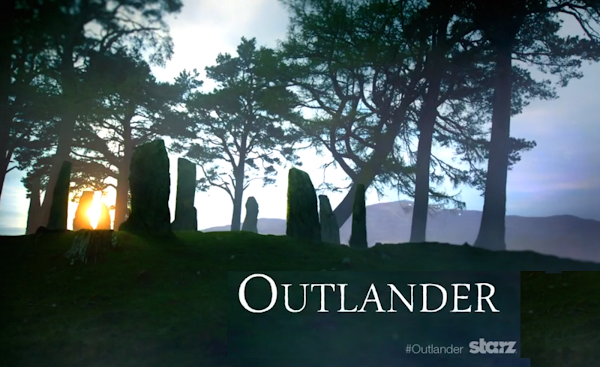Book Review: HOW THE SCOTS INVENTED THE MODERN WORLD
I have been reading Arthur Herman's HOW THE SCOTS INVENTED THE MODERN WORLD, and finally finished it last night. I wanted to share some of my impressions with you.
The book's concept is intriguing for OUTLANDER fans: to show how Scots, and people of Scottish ancestry, have had an enormous influence on virtually every aspect of modern society. Herman focuses primarily on the eighteenth century, a period which he refers to as the Scottish Enlightenment.
Overall I found it an interesting read, although it dragged in places (the chapter on Adam Smith in particular was difficult to get through, but possibly that's because I've never had much interest in economic theory). He goes into some detail about the Rising of 1745, and about the Clearances of the early 19th century (in which thousands of people were forcibly evicted from the Highlands).
In the latter half of the book, the author's conceit that just about every event or discovery of importance in the last 200 years has had a Scottish connection started to grate on me a bit. (Keeping in mind that I don't have a drop of Scottish blood.) I kept thinking to myself, surely not everything is a Scottish invention! And in fact some of these claims seem exaggerated. James Marshall, who discovered gold at Sutter's Mill in California in 1848, igniting the Gold Rush, is described as "a Scottish immigrant" (p. 397), but everything I can find online about him states that he was born in New Jersey.
On the other hand, here are a few things that surprised or intrigued me:
Thomas Jefferson's famous phrase "the pursuit of happiness", which we tend to think of as a quintessentially American concept, in fact has its roots in the work of Francis Hutcheson (1694-1746), an "Ulster Scot" (the term then used for Scots living in Northern Ireland). Hutcheson, coincidentally, was the first university professor to lecture in English (at the University of Glasgow); until then, all university lectures had been conducted in Latin.
Sir Walter Scott (1771-1832) was the first to write what we today would call historical fiction.
The historical novel became a distinct art form, a way of making the past come alive through an intriguing blend of imaginative fantasy and meticulous fidelity to historical truth--a form that has proved more successful with modern readers than history itself. (p. 310)I find that ironic indeed, that the very genre that drew so many of us to Diana Gabaldon's work in the first place was in fact invented by a Scot.
Other famous Scots (or people of Scottish ancestry) mentioned in the book include:
- James Watt (inventor of the steam engine)
- Alexander Graham Bell
- Robert Louis Stephenson
- John MacDonald (Canada's first Prime Minister, who played a major role in the formation of modern-day Canada)
- David Livingstone (African explorer and missionary)
- Flora MacDonald (yes, the same one who appears in ABOSAA)
- Alexander Fleming (discoverer of penicillin)








I had no idea.
I love economics, so thanks for the heads up.
Paul
Eat Well. Live Well.
PurpleGreenPops.com
Paul - indeed he was, and I didn't know that either until I read this book!
Karen
(My "post comment" is finally working again--can you tell? [g])
It is said that Jefferson came up with those words after reading Smith's Theory on Moral Sentiments and the Wealth of Nations. (It should be noted Smith determined that 'the means of production' are what makes up 'The Wealth of Nations'.
In order to be Happy, one must take care of one's Self Interest AND be Altruistic towards others, at the same time and the balance between the two are ever changing depending upon daily circumstances. This means that Government cannot force you to be generous, tax you for "The Good of the People", nor can they deny you the benefits of serving your own interests such as your family, etc. One has the Right to be Self Interested AND display their Altruism as they see fit without Gov't interference or coercion.